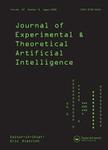版权所有:内蒙古大学图书馆 技术提供:维普资讯• 智图
内蒙古自治区呼和浩特市赛罕区大学西街235号 邮编: 010021

作者机构:Islamic Azad Univ Masjed Soleiman Branch Dept Math Masjed Soleiman Iran Firouzabad Inst Higher Educ Dept Ind Engn Firouzabad Fars Iran
出 版 物:《JOURNAL OF EXPERIMENTAL & THEORETICAL ARTIFICIAL INTELLIGENCE》 (人工智能实验与理论杂志)
年 卷 期:2019年第31卷第3期
页 面:393-408页
核心收录:
学科分类:08[工学] 0812[工学-计算机科学与技术(可授工学、理学学位)]
主 题:Uncertainty theory belief degree linear fractional transportation problem chance-constrained programming
摘 要:A linear fractional transportation problem in uncertain environment is studied in this paper where the uncertain parameters of the problem are of belief degree-based uncertainty. For the first time, this type of uncertainty is considered for the linear fractional transportation problem. Belief degree-based uncertainty is useful for the cases that no historical information of an uncertain event is available. Zigzag type uncertainty distribution is used to show the belief degree-based uncertainty of the parameters of the problem. As solution methodology, the uncertain linear fractional transportation problem is converted to a crisp form using three approaches of expected value model, expected value and chance-constrained model, and chance-constrained model, separately. An extensive computational study on a real illustrative example shows the efficiency of the proposed formulation and the conversion approaches. The sensitivity analysis over the example illustrates the high dependency of the objective function value to the changes of the confidence level values of the chance constraints in the expected value and chance-constrained programming approach and the chance-constrained programming approach.